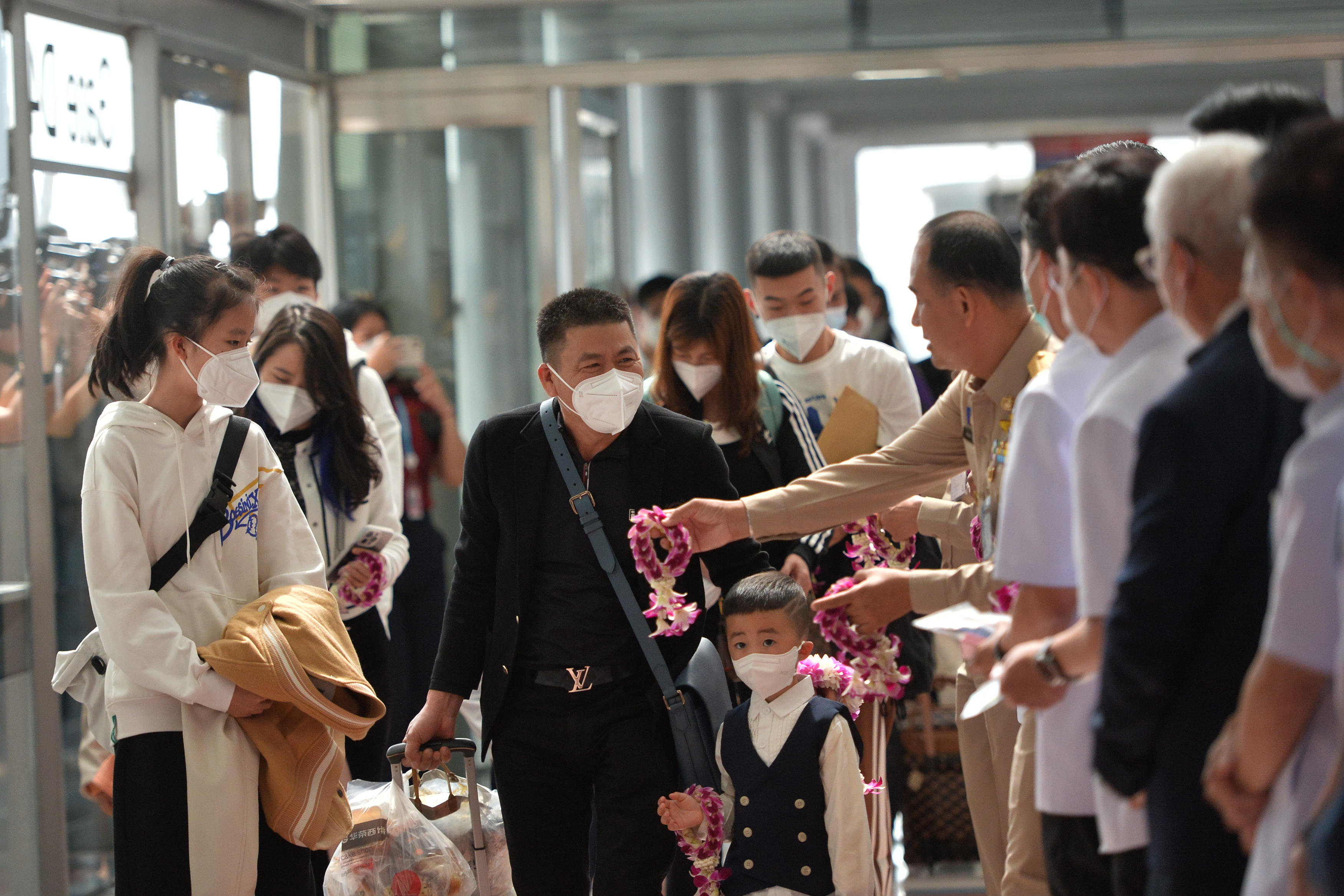Imposing COVID Restrictions on Chinese Travelers Makes No Sense
Thai officials welcome Chinese tourists with flowers as they arrive at Bangkok's Suvarnabhumi Airport, January 9, 2023. (PHOTO: XINHUA)
Edited by TANG Zhexiao
The U.S. Centers for Disease Control and Prevention (CDC) announced on December 28, 2022, that air passengers from China would be required to provide a negative COVID-19 test or documentation of recovery before being allowed to board.
Besides the U.S., the European Union, UK, Japan, South Korea and India are among the group of countries that have announced similar testing requirements for Chinese travelers.
Implemented from January 5, the statement said CDC announced this step to slow the spread of COVID-19 in the U.S. during the surge of COVID-19 cases in China, "Given the lack of adequate and transparent epidemiological and viral genomic sequence data being reported from the China."
In fact, China has always shared its information and data responsibly with the international community.
The country continues to share the genome data of the virus via the Global Initiative on Sharing Avian Influenza Data, carrying out over 60 technical exchanges with the World Health Organization (WHO) over the past three years, two of which were conducted after the release of the 10 new measures (on December 7) alone, according to Foreign Ministry Spokesperson Mao Ning.
High-level officials from China's National Health Commission and the National Disease Control and Prevention Administration briefed WHO on December 30, 2022, about China's evolving strategy and actions in the areas of epidemiology, monitoring of variants, vaccination, clinical care, communication and R&D, according to a WHO newsroom report.
Despite this, White House Press Secretary Karine Jean- Pierre said that the health measures taken by the U.S. and other countries targeting people traveling from China are to protect their citizens. The biggest concern for these countries has been the potential for the emergence of a new variant in China.
However, many experts and the WHO have long said that travel restrictions are not a particularly effective means of controlling the spread of the coronavirus.
Maria Van Kerkhove, an epidemiologist with the WHO, said that there are more than 500 "sub-lineages" of omicron already circulating globally. "There is a significant circulation of this virus globally, and the risk of further variants can come from anywhere," she said.
The European Center for Disease Prevention and Control, which noted on January 2 that no new variants had been recorded in China so far, said that E.U. citizens had high levels of immunity and vaccination against the known variants in circulation, which means the rise in China's infections was not challenging for the immune response of people in Europe.
Experts like Jeffrey Shaman, an epidemiologist at Columbia University, think that the restrictions are unnecessary and illogical. "Travel restrictions seem intended to stop the virus at the border, which makes no sense given that the virus is already everywhere," he said.
Even the U.S. media does not approve of these new restriction measures.
The Washington Post said that this virus continues to mutate, "But there's no reason to think China's COVID surge creates a special condition for the emergence of a new variant."
And the introduction of stringent requirements for travelers can be logistically cumbersome, discriminatory and politically toxic, The New York Times reported.
Foreign Ministry Spokesperson Mao Ning stressed, China truly hopes the focus will be on tackling the virus rather than politicizing the COVID issue, and countries can step up solidarity and make joint efforts to defeat the pandemic at the earliest date.



